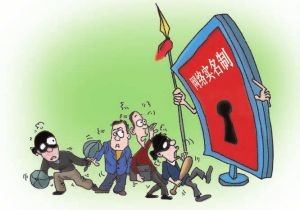
China's official news agency says the government has tightened controls on Internet users by enacting rules requiring them to register their real names.
中国官方通讯社报道,政府通过要求网民实名注册加强了对互联网用户的控制。
The state Xinhua news agency said lawmakers approved the measures Friday at the closing meeting of a five-day session of the Standing Committee of the National People's Congress.
官方的新华社说,历时五天的全国人大常委会在星期五的闭幕会议上通过了这项措施。
Beijing says the regulation is aimed at protecting the personal information of Web users and cracking down on abuses such as junk e-mail.
中国官方说,这项规定是为了加强保护网络用户的个人信息,并打击垃圾邮件等滥用行为。
However real-name registration will also curtail people's ability to report, often anonymously, corruption and official abuses.
然而,实名登记制还将限制人们在网上举报官员腐败和滥用职权,这些举报通常是匿名进行的。
Many Internet users in China have turned to so-called virtual private networks (VPNs) to gain access to websites that are otherwise blocked by China's Internet censorship, but Duncan Clark, a Beijing-based consultant who is also a senior adviser to Stanford University's Graduate School of Business, tells VOA's Victor Beattie Chinese authorities are limiting access to those, too, and that could hurt business:
中国境内很多网络用户使用“虚拟个人网络”(VPN)登陆被中国审查人员封锁的网站。不过,在北京的咨询商、同时担任斯坦福大学商学研究生院做高级顾问的邓肯·克拉克对美国之音记者贝蒂说,中国当局也在限制人们获取VPN的途径,这可能会伤害到公司企业。
"On the one hand we have a lot of multi-national companies who depend on, and that includes Chinese multi-nationals who are trying to go global, who depend on access to sites outside and secure ways of exchanging data. But also we have a number of small to medium size enterprises who use cloud computing or things like Google Drive to access say you know shared accounting or invoicing software, and once that's blocked, of course people have been shifting to these VPNs, but if the VPNs aren't working, then you're out of luck."
克拉克说:“一方面,我们有很多跨国公司,包括那些想要走向全球的中国跨国公司,它们必须能够登陆境外网站并以安全方式交换数据。可是,我们还有一些中小型企业,它们利用计算机云技术或者谷歌的Google Drive这样的途径来获取财务共享或者账单共享等软件。而一旦这条途径被封,人们就转向这些VPN,而如果VPN也不灵了,那你就倒霉了。”
Beijing promotes Internet use for business and education but bans material deemed subversive and blocks many Web sites.
北京推动商务或教育性的互联网使用,但禁止被视为具有颠覆性的内容,并封锁了许多网站。


